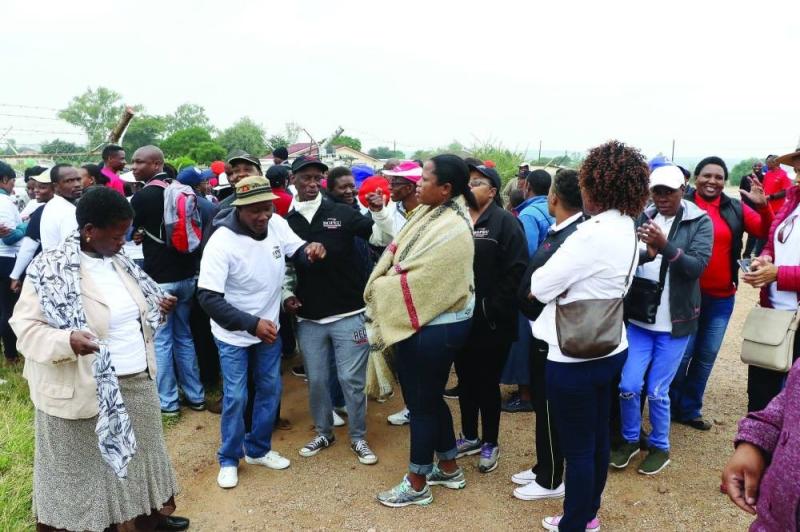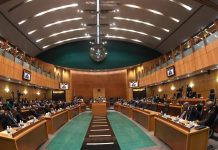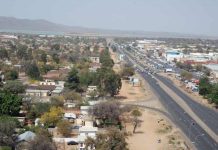Africa-Press – Botswana. The P46.4 billion government has tasked the Botswana Unified Revenue Service (BURS) to collect this year will come from a smaller proportion of taxpayers, as a recent study by the agency shows that up to 60% of those who should be contributing are not.
The BURS study, revealed at a recent media briefing recently, indicates that the tax losses could measure up to five percent of the country’s Gross Domestic Product (GDP), an economic indicator that for 2021 was estimated at just under P200 billion.
“We did a tax gap study in the past financial year and it shows that between 40% and 60% of those who would otherwise be paying tax across the spectrum are not paying,” BURS’ Commissioner of Operations, Phodiso Valashia told the media. “That translates to between four and five percent of the GDP in terms of the money that would otherwise be accruing to Botswana in tax.”
While the BURS has vowed to step up its collection efforts to spread the tax burden evenly across all eligible taxpayers, tax experts told Mmegi that numerous gaps existed in the country. The gaps, the experts said, were helped along by a trend where some eligible taxpayers were either ignorant of their obligations or actively evaded tax comforted by the BURS’ weak enforcement of existing tax laws.
A local tax expert, who requested anonymity for professional reasons, told Mmegi that while larger businesses who do not pay taxes are aware of their illegal acts, the majority of tax dodgers involve small businesses who are generally unaware of their obligations or fly below the BURS’ radar.
The majority of taxes being dodged are personal income tax where small businesses that employ people but do not register or pay tax while others include the withholding tax due on rentals as well as corporate taxes by businesses, including Value Added Tax by those that reach the P1 million threshold.
“You have businesses such as bus operators, combis, and hair salons where people can earn more than the P4,000 per month that they have to pay income tax on, but they may be either ignorant about the requirement or they purposefully skip registration and payment,” the expert said. “You also have people who secure huge tenders and contracts from government, the mines, and others and they are either running briefcase companies or small businesses and tend to know the tax law, but choose not to pay. “A lot of money is also being lost because people are not paying capital gains tax on the sale of land, houses, farms, and shares and it is quite difficult for BURS to catch them.”
The expert singled out Chinese retailers as a major source of untapped tax revenue, noting that many of the traders did not issue receipts or account for their sales. The omission means the BURS is robbed of both VAT and income tax.
According to the expert, the BURS should not focus its efforts on ‘chasing after’ individual tax dodgers in small businesses and the semi-informal sector such as transport and hair salons, but rather push for laws that will strengthen the need for tax clearance certificates at regulators such as the Deeds Registry and the various licensing authorities.
In addition, the BURS needs to vastly improve its education and awareness campaigns around the different tax types, thresholds for registration, deadlines for payments, and penalties.
“Unlike in the developed world where there is a culture of paying taxes, in the developing world agencies such as BURS have to take the lead and campaign to inculcate this culture.
“Each week, we should be seeing the BURS banners out in public and newspapers advising about the thresholds, the types of taxes, the processes for registration and payment, and others. “Much of the uncollected taxes are not being paid because people and businesses are not even aware that they should be paying, and for those who know, they have a belief that BURS will never enforce the law.”
For the 2022–2023 financial year, income taxes are expected to reach P14.3 billion, while VAT could touch P12 billion. Much of the P46.3 billion target will come from mining taxes and the SACU revenues.
While it had been generally accepted that the players in the country’s minerals sector adhere to local tax laws, the Auditor General recently found that the Department of Mines had not been sufficiently verifying whether the dues paid by mining companies matched their production and sales, meaning government has potentially been receiving less than what is fair.
The Auditor General’s investigations found that loopholes in policy and law, as well as poor capacity at the Department of Mines, meant that government could not be entirely sure it was getting its fair share of the values being generated in mining.
The BURS, however, scored a rare victory against a minerals sector player recently when a statutory Board of Adjudication ruled that a diamond cutting and polishing company had short-changed the tax collector out of P8 million through a practice known as ‘transfer pricing’.
Diacore Botswana recorded company losses in its tax returns between 2010 and 2014, prompting the BURS to audit its finances, which revealed that for some of the period a tax liability of P8 million was due.
Diacore had avoided the liability via transfer pricing, in which the diamonds it sold to its parent company outside Botswana were priced lower than it would have priced them had they been sold to an independent, separate entity.
Analysts said the case highlights the complexity of closing loopholes in the country’s tax systems and the need to further capacitate the BURS to tackle more complex tax cases.
Responding previously to Mmegi’s enquiries on the matter, BURS spokesperson, Refilwe Moono said the BURS continuously re-tools its skillset to be able to keep pace with the evolution of international taxation and transfer pricing, in order to deal with “such issues as and when they arise”.
“It is important to note that the fact that BURS has won this case twice at different appeal stages signifies the level of competence in what we do with respect to auditing,” she said.
For More News And Analysis About Botswana Follow Africa-Press






